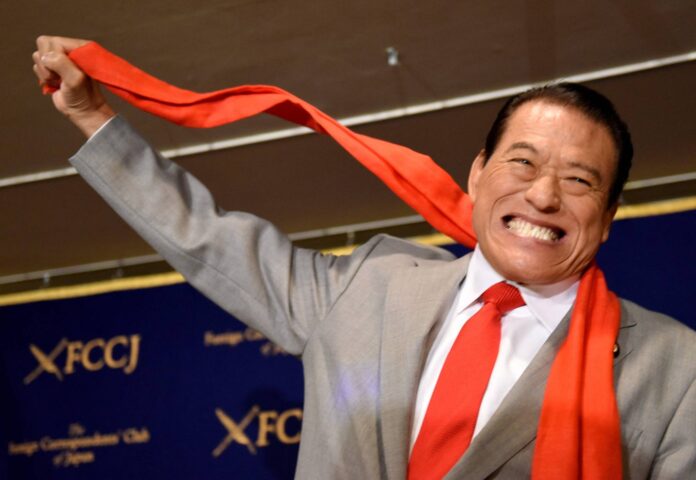RIYADH: Legendary Japanese figure Antonio Inoki, real name Muhammad Hussain Inoki, died on Saturday at the age of 79.
Inoki was a professional wrestler, martial artist, politician and promoter for both professional wrestling and mixed martial arts.
Born in Yokohama, Japan in 1943, he spent most of his childhood in Brazil where his family had relocated. There, he developed a passion for professional wrestling. Inoki was recruited by Rikidozan, one of the the most famous Japanese wrestlers of all time, and returned to Tokyo to join the Japanese Wrestling Association.
In his home country, Inoki became widely popular and revered for his versatility and for his charismatic demeanor in the squared circle. His contributions transcended achievements inside the ring, and he founded New Japan Pro-Wrestling in 1972.
Over the course of the next two decades, Inoki built NJPW into the most successful wrestling company in Asia, using talented competitors such as Tiger Mask, Dynamite Kid, Bob Backlund, and Vader.
In addition to running the promotion, Inoki himself was one of the top stars carrying the championship, stepping into the ring against the likes of Stan Hansen, Tiger Jeet Singh and Hulk Hogan.
He gained global fame in 1976 when he faced Muhammad Ali in a wrestler vs. boxer match in Tokyo. This encounter was credited for being a precursor to what is known today as mixed martial arts, and was one of the most watched fights of its generation. In addition to the sold-out crowd of more than 14,000 at the Nippon Budokan in Tokyo, it aired on closed-circuit across the world.
Shea Stadium in New York aired the bout on its big screen and drew a crowd of 32,897, with an undercard of pro wrestling and mixed-rules matches preceding the main event.
Outisde the ring Inoki used sport to forge peace and diplomacy. In 1990, he played a major role in freeing 36 Japanese hostages held in Iraq.
Inoki was also a outstanding ambassador for professional wrestling, bringing major events to places such as Russia and China.
He was also instrumental in organizing two large sporting events in Pyongyang in 1995, and another in 2014. The first event, known as “Collision in Korea” drew nearly 380,000 fans and is considered the biggest-pay-per-view in pro-wrestling history.
In 1998, Inoki retired from in-ring competition. In 2010, he was inducted to the WWE Hall of Fame. An WWE statement said: “This passion for competition earned him the nickname ‘Moeru Toukon’ among his peers, which translates to ‘The fighting spirit that burns’.”
Inoki leaves behind a unique legacy as a competitor. He was 12-time professional wrestling world champion, notably being the inaugural IWGP Heavyweight Champion and the first Asian WWF Heavyweight Champion in a reign not officially recognized by WWE.
The cause of Inoki’s death was not released, but he had been ill in recent years and confined to a wheelchair.

